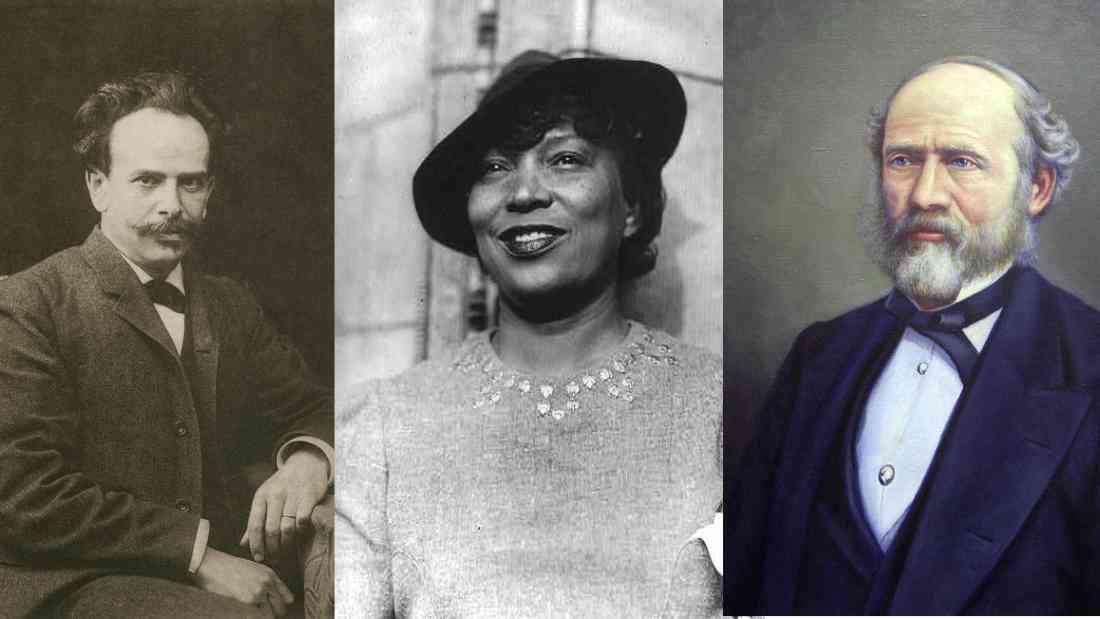Anthropology, the study of human societies and cultures, has been shaped and influenced by various thinkers over the years. In the United States, several anthropologists have made significant and important contributions to the field. Let’s delve into the work of some of these famous anthropologists.
Lewis H. Morgan: A Founding Father of Modern Anthropology and Ethnography
Lewis Henry Morgan (1818 – 1881) was a respected lawyer who developed a profound interest in the Haudenosaunee (Iroquois) Indians of New York State.
This interest sparked comprehensive studies that laid the groundwork for modern anthropology. His ethnographic endeavors went beyond mere observation; he immersed himself in the community to better understand their social structure, customs, and kinship systems.
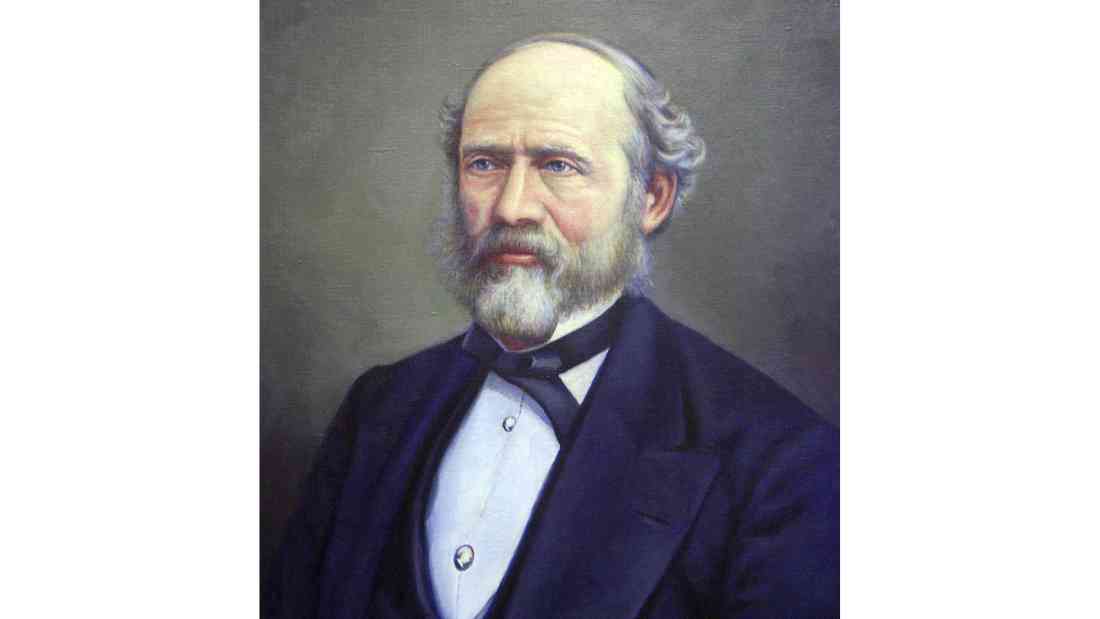
Morgan’s work on kinship systems is also considered foundational to the field of anthropology.
He proposed a universal system of terminology to classify kin relations, providing a framework for comparing different societies’ social structures.
His theories on social evolution, which suggested a progression from ‘savagery’ through ‘barbarism’ to ‘civilization,’ were groundbreaking at the time, although they were critiqued in subsequent years.
One of Morgan’s most influential works is “Ancient Society,” a book that delves deep into human social evolution and the importance of kinship systems.
The book has been instrumental not only in anthropology but also sociology, inspiring thinkers like Friedrich Engels, who drew upon Morgan’s work in his own analysis of the origins of family structures, private property, and the state.
As one of the first American anthropologists, Morgan is famous for grappling with new issues and challenges in the discipline. His contributions to anthropology and ethnography have been monumental. His innovative research methods, theories of social evolution, and studies of kinship systems continue to shape our understanding of human societies and cultures.
Franz Boas: The Trailblazing Father of American Anthropology
Hailed as the ‘Father of American Anthropology,’ Franz Boas (1858 – 1942) as a German-American anthropologist who profoundly shaped the field’s trajectory.
His pioneering work and innovative theories have had an enduring impact, setting the stage for modern anthropological studies.

Boas is best known for introducing the concept of cultural relativism – a groundbreaking theory that revolutionized how cultures are studied and understood.
This perspective posits that each culture should be comprehended in its own right, rather than being judged or compared by the standards of another.
Cultural relativism encouraged a more empathetic and open-minded approach to studying human societies, fostering a deeper appreciation for cultural diversity.
Boas’ emphasis on understanding each culture within its unique context was a direct challenge to the ethnocentric views prevalent during his time.
His approach shifted the focus from hierarchical ranking of cultures to understanding the internal logic and values of each culture.
Another significant contribution by Boas was his development of the four-field approach to anthropology.
This holistic framework encompassed biological anthropology, archaeology, linguistic anthropology, and cultural anthropology. By integrating these diverse disciplines, Boas underscored the interconnectedness of various aspects of human life and society.
In biological anthropology, Boas challenged prevailing notions about race, arguing that racial categories were socially constructed rather than biologically determined. His archaeological work emphasized the role of culture in shaping human adaptation to different environments.
In linguistic anthropology, Boas proposed that language shapes our perception of reality, a theory now known as linguistic relativity.
And in cultural anthropology, he stressed the importance of fieldwork and ethnography, promoting immersive research methods that prioritized local perspectives.
He played a pivotal role as a mentor to several famous anthropologists, notably Alfred Kroeber, Margaret Mead, and Ruth Benedict. Each of these protégés went on to become groundbreaking figures in anthropology, carving out their own unique paths and significantly influencing the field in their own right.
Franz Boas’ impact extends beyond academia. He was an outspoken critic of racism and ethnocentrism, using his anthropological insights to challenge social injustices.
His legacy continues to resonate today, reminding us of the power of empathy, understanding, and critical inquiry in our quest to understand the human experience.
Alfred Louis Kroeber: A Foundational Figure in American Anthropology
Alfred Louis Kroeber (1876 – 1960) was a pioneering cultural anthropologist who played a pivotal role in shaping the trajectory of American anthropology.
Born in Hoboken, New Jersey, and raised in New York City, Kroeber pursued his academic career at Columbia University, earning a B.A. in 1896 and later receiving his Ph.D. under Franz Boas in 1901, the first doctorate in anthropology awarded by Columbia.
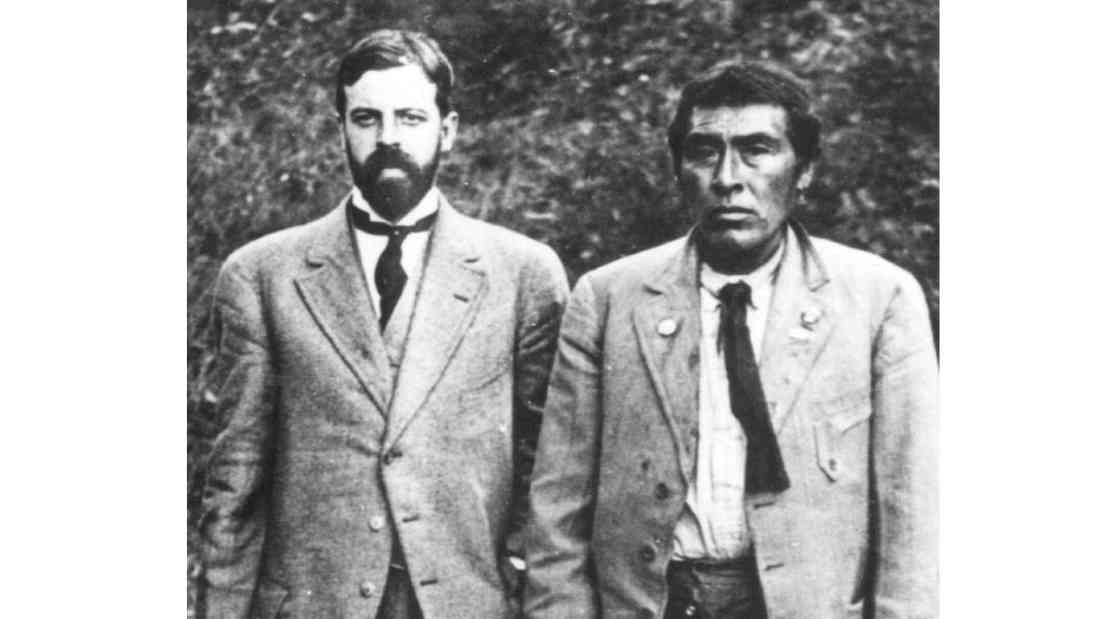
Kroeber’s work was characterized by an impressive degree of insight, an openness to new ideas, and a phenomenal memory for data.
His contributions spanned a wide array of anthropological theories, and he is particularly known for his work on cultural relativism and primitivism. He was an influential advocate for understanding cultures in their own contexts, rather than through the lens of Western norms and values.
Apart from his theoretical contributions, Kroeber was instrumental in transforming American anthropology from a field dominated by amateurs and self-taught individuals to a rigorous academic discipline.
His influence extended beyond academia, with his name being honored at the University of California, Berkeley, where Kroeber Hall stands as a testament to his significant impact.
Kroeber also made notable contributions to linguistic anthropology. Having entered anthropology via the study of language, he held a deep understanding of the interplay between language, culture, and society. His work in this area further broadened the scope of anthropological research and established important connections between humanistic literature and anthropology.
Margaret Mead: Shattering Stereotypes
Considered a trailblazer in the world of cultural anthropology, Margaret Mead (1901 – 1978) was a woman ahead of her time. Her groundbreaking work has left an indelible mark on the field, particularly her insightful studies on gender roles across diverse cultures.
Mead’s most acclaimed work, “Coming of Age in Samoa,” sent ripples through the academic community and beyond. In this seminal book, she meticulously examined adolescence, sexuality, and gender norms in Samoan society.
Her observations shattered long-held Western beliefs about these topics, prompting readers to question their own cultural norms and biases.
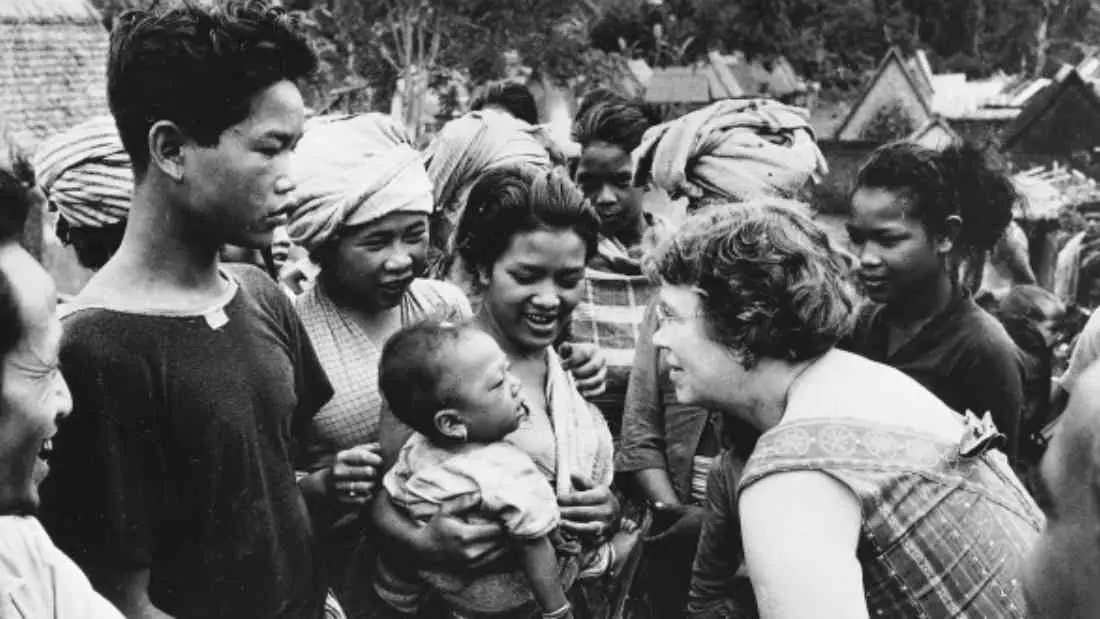
Mead’s research in Samoa led her to conclude that adolescence was not universally a period of turmoil and confusion, as was commonly believed in the West.
Instead, she found that Samoan teenagers experienced little of the angst and behavioral issues prevalent among their American counterparts. She attributed this difference to Samoa’s sexually permissive culture and communal child-rearing practices.
Another significant contribution of Mead’s work was her exploration of gender roles.
She observed that Samoan society did not rigidly define masculine and feminine roles, unlike Western societies. This led her to posit that gender roles were not biologically determined but rather culturally constructed, a theory that was revolutionary at the time.
Underpinning all of Mead’s work was her firm belief in the power of culture in shaping human behavior.
She argued that it was not biology but culture that had the most profound influence on how individuals thought, felt, and acted. This theory, known as cultural determinism, has profoundly influenced anthropological thinking and continues to be a central tenet in the field today.
Margaret Mead’s bold inquiries and thought-provoking theories challenged societal norms and opened new avenues of understanding for anthropologists. Her legacy is a testament to the power of questioning, exploring, and looking beyond one’s own cultural lens.
Ruth Benedict: Illuminating Patterns of Culture
Ruth Benedict, (1887 – 1948) a distinguished American anthropologist and a protégé of Franz Boas, carved her own niche in the field by extending and refining her mentor’s theories.
Her innovative concept of ‘patterns of culture’ has profoundly shaped cultural anthropology and continues to influence contemporary research.
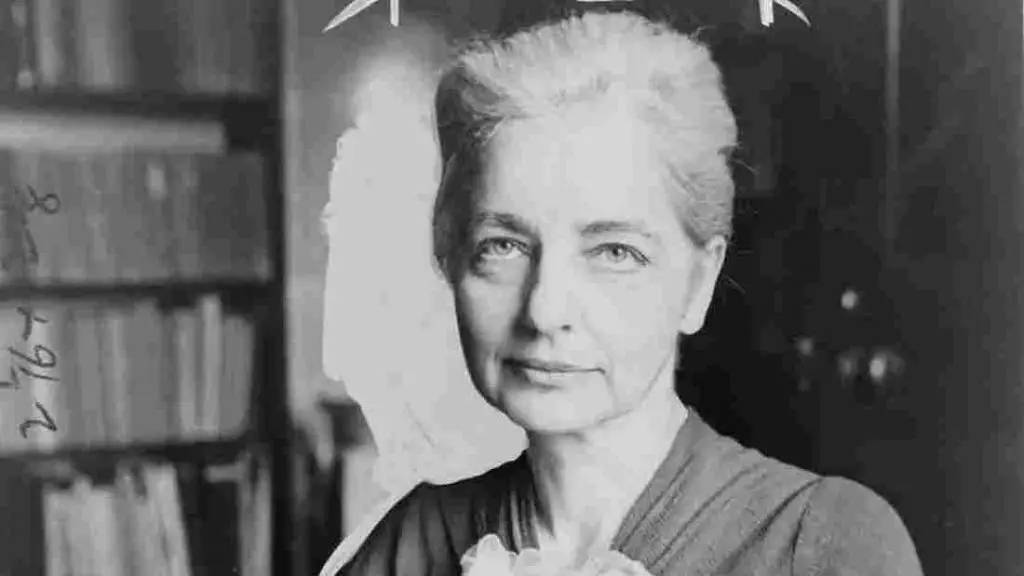
Benedict’s seminal work, “Patterns of Culture,” introduced the groundbreaking concept that cultures, akin to individuals, have distinct personalities.
This was a transformative idea, suggesting that each culture possesses its own unique ethos or worldview, which could be discerned through careful analysis of its rituals, arts, customs, and social norms.
Benedict proposed that these cultural patterns were not random but were woven into a coherent whole, reflecting a society’s values and priorities.
She argued that these cultural patterns shape individual behavior to a significant extent, a view that built upon Boas’ theory of cultural determinism.
In “Patterns of Culture,” Benedict analyzed three societies: the Puebloans in the American Southwest, the Dobu Islanders in Papua New Guinea, and the Kwakiutl of the Pacific Northwest. She characterized the Puebloans as ‘Apollonian’ or serene, the Dobu Islanders as ‘paranoid,’ and the Kwakiutl as ‘Dionysian’ or ostentatious, reflecting her belief in cultural personality.
In addition to her theoretical contributions, Benedict played a crucial role in applying anthropology to real-world problems.
During World War II, she wrote “The Chrysanthemum and the Sword,” a landmark study of Japanese culture that helped American policymakers understand their former enemy and chart a peaceful post-war relationship.
Ruth Benedict’s legacy lies not only in her influential theories but also in her commitment to using anthropology as a tool for promoting cultural understanding and social justice.
Her work continues to inspire anthropologists today, reminding us that to truly understand a culture, we must look beyond its individual elements and discern the patterns that give it its unique character.
Zora Neale Hurston: Blending Literature and Anthropology
Zora Neale Hurston (1891 – 1960) was an acclaimed author and a groundbreaking cultural anthropologist, whose work brilliantly fused literary artistry with anthropological perspectives.
Known for her vibrant narratives and compelling characters, Hurston’s work transcended the realm of fiction to offer profound insights into the African American experience.
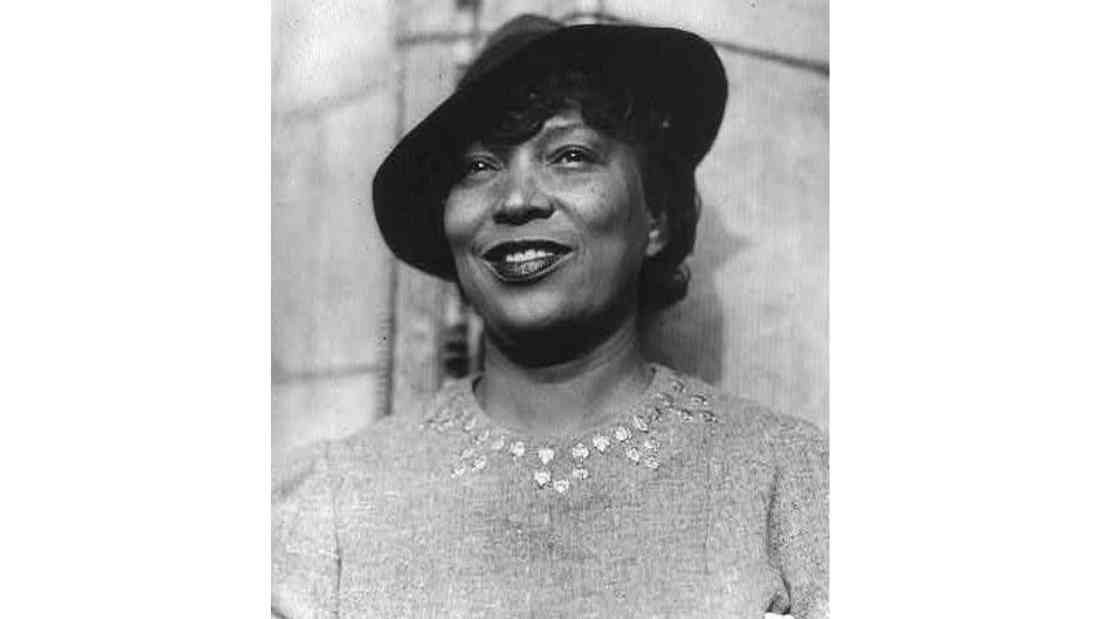
Hurston’s unique approach to anthropology centered on capturing the richness and diversity of African American cultures.
She conducted extensive fieldwork in the Caribbean and the American South, immersing herself in local communities to collect their folklore, customs, and oral histories.
Her research shed light on the ways these cultures navigated the complexities of race, class, and gender, offering a nuanced portrayal of their lived experiences.
One of Hurston’s most notable works, ‘Mules and Men,’ exemplifies her innovative anthropological approach.
The book presents a collection of folklore from the African American community in the Southern United States, masterfully woven into a narrative that is both engaging and enlightening.
Through this work, Hurston preserved and celebrated the oral traditions of African American culture, highlighting their importance in shaping community identities and social relations.
However, Hurston’s contributions to anthropology extended beyond her published works.
As a woman of color in a predominantly white field, she broke numerous barriers and paved the way for future generations of diverse anthropologists.
Her determination to capture Black southern folk culture, despite the double burden of class and gender, marks her as a trailblazer in the field.
Additionally, Hurston’s work as an anthropologist informed her acclaimed novels and plays, which often depicted African American life in the South.
Her literary works, such as the novel “Their Eyes Were Watching God,” are renowned for their vivid portrayal of Black life and culture, grounded in her anthropological insights.
In essence, Zora Neale Hurston was a dynamic interdisciplinary scholar who skillfully blended literature and anthropology. Her work continues to resonate today, reminding us of the power of storytelling in illuminating the complexities of human cultures and experiences.
Clifford Geertz: Champion of Interpretive Anthropology
Clifford James Geertz (1926 – 2006) was a renowned American anthropologist known for his significant contributions to the field of cultural anthropology. His work has left an indelible imprint on how we understand cultures, symbols, and meanings in society.
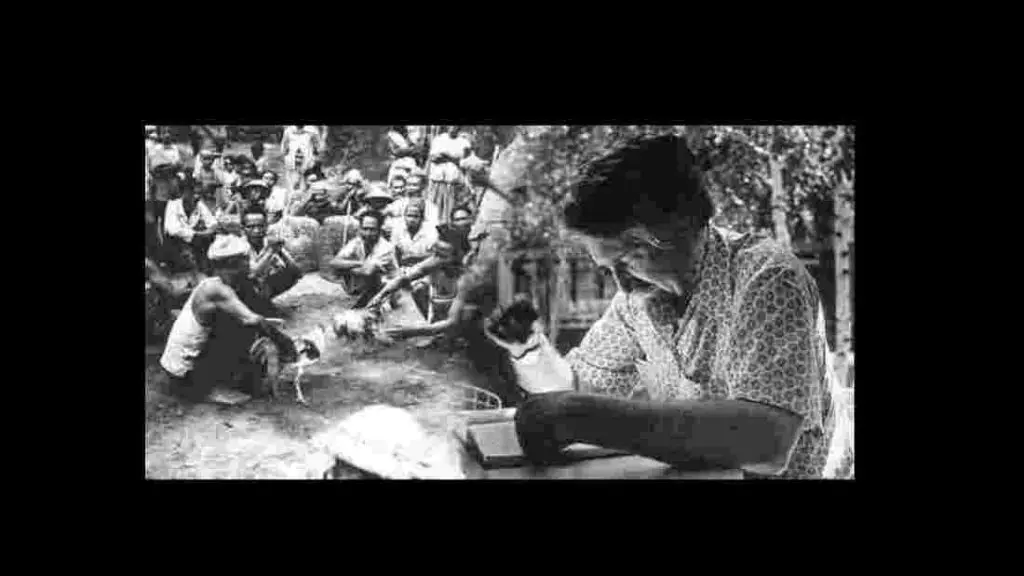
Born in San Francisco, California, Geertz’s academic journey led him to become Professor Emeritus of Social Science at the Institute for Advanced Study in Princeton. He held this position since 1970 and remained a respected faculty member until his death.
Geertz is perhaps best remembered for his pioneering approach to anthropology, which he termed ‘interpretive anthropology.’
This approach emphasizes understanding cultures and societies through their symbols and meanings rather than seeking causal explanations.
In essence, Geertz championed the idea that social scientists should aim to interpret the world as their subjects do, rather than imposing external frameworks.
One of Geertz’s most significant works, “The Interpretation of Cultures,” beautifully encapsulates his interpretive approach.
This book revolutionized the concept of culture and its impact on human behavior, asserting that culture is a system of inherited conceptions expressed in symbolic forms by means of which people communicate, perpetuate, and develop their knowledge about and attitudes toward life.
Geertz’s work has been instrumental in shaping ‘thick description,’ a method in ethnography that involves detailed accounts of cultural practices to gain deep insights into particular societies.
By promoting the study of cultures in their own terms, Geertz has helped to foster a more nuanced and empathetic understanding of human diversity.
In addition to his scholarly contributions, Geertz was also a compelling writer whose eloquent prose brought his ideas to life. His writings have not only influenced anthropologists but also scholars in other fields such as sociology, history, and philosophy.
Edward T. Hall: Pioneer of Intercultural Communication
Edward Twitchell Hall Jr. (1914 – 2009) was an influential American anthropologist who made significant contributions to the understanding of intercultural communication.
Born in Webster Groves, Missouri, Hall embarked on his academic journey at the University of Denver and later received his Ph.D. in Anthropology from Columbia University in 1942.
Hall is best known for developing the concept of ‘high context’ and ‘low context’ cultures, a theory that has profoundly influenced the field of intercultural communication. These terms refer to the degree to which communication relies on contextual cues rather than explicit verbal information.
For example, ‘high context’ cultures rely heavily on non-verbal cues and long-established social norms, while ‘low context’ cultures depend more on clear, direct communication.
In addition to this, Hall introduced the idea of ‘proxemics’ – the study of human use of space and the effects that population density has on behavior, communication, and social interaction.
His work in this area has provided critical insights into how different cultures perceive personal space and territoriality.

Hall’s works such as “The Silent Language” (1959), “The Hidden Dimension” (1966), and “Beyond Culture” (1976) have become seminal texts in the study of intercultural communication.
His ability to articulate complex concepts in an accessible way has not only enriched anthropology but also fields like psychology, communication studies, and business.
Concluding Reflections on These Famous Trailblazing Anthropologists
The field of anthropology owes its rich depth and breadth to the invaluable contributions of these famous anthropologists.
Each, in their unique way, has pushed the boundaries of knowledge, challenged prevailing norms, and expanded our understanding of the complex tapestry of human societies and cultures.
From the pioneering research by famous anthropologists such as Franz Boas, Ruth Benedict, and Margaret Mead, to the interdisciplinary approach of anthropologists like Zora Neale Hurston and Clifford Geertz, these scholars have left an indelible imprint on the discipline.
As we delve deeper into the exploration of human societies and cultures, the enduring legacy of these famous anthropologists serves as both a guiding light and a source of inspiration. They remind us of the transformative power of anthropological research in fostering a more nuanced, empathetic, and holistic understanding of our shared humanity.
For Further Reading
Jane Goodall – a pioneering primatologist
Marshall Sahlins (1930 – 2021) – Race is a Social Construct
Saba Mahmood – a strong voice in the anthropology of religion and post-colonialism
Claude Lévi-Strauss’s Structuralism and its Influence on Anthropological Thought
Clifford Geertz – the man who pioneered “thick description” in anthropology
Ruth Benedict: The anthropologist who believed that cultures have personalities
Michael Taussig – Doctor and Anthropologist
Bronislaw Malinowski: The Father of Field Research
Margaret Mead: A Pioneering Anthropologist
Empowering Voices: The Best Quotes from Margaret Mead
Franz Boas: The Father of American Anthropology
Émile Durkheim: The Father of Sociology and His Contributions to Anthropology
The Towering Legacy of Marilyn Strathern in Anthropology
Gayle Rubin and Her Ground-Breaking Contributions to Anthropology and Gender Studies
Unraveling Human Origins: The Paleontological Legacy of Kenneth Oakley

